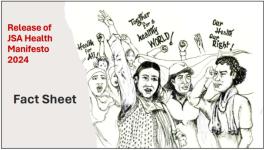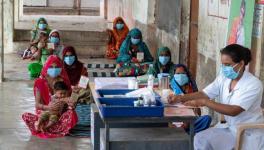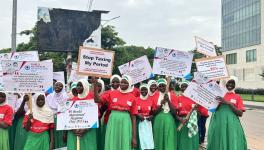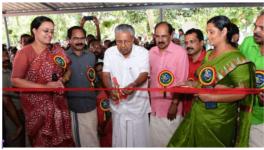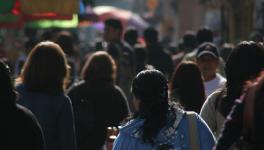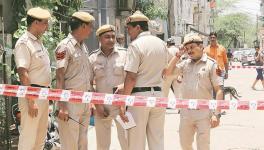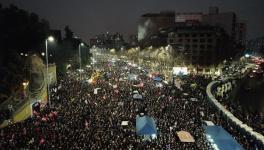Chileans Carry Out a Two-day National Protest Against Piñera’s Government
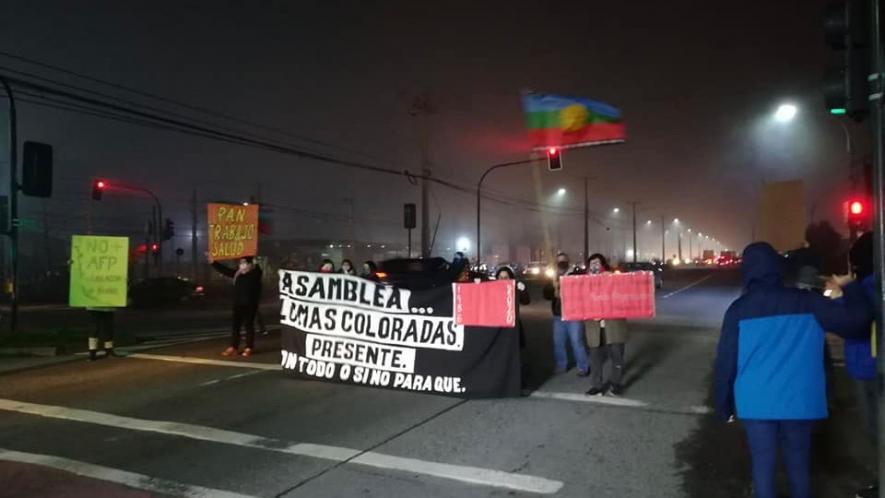
A demonstration against hunger and misery on the night of June 2 in Maipu City. Photo: Radio 19 de Abril
Chilean social movements and trade unions called for a two-day national protest against the right-wing government of President Sebastián Piñera on July 2 and 3. Through social media networks, the organizations called on the people to demonstrate from their homes and offices, anytime during the day and in ways they are capable of. Under the banner of “For food, work, life and dignity,” the organizations urged the people to revive the national movement against the government’s neoliberal policies and glaring inequalities in the country, which began in October 2019 and continued for almost 5 months until the coronavirus outbreak in March.
The dates of national protest coincided with the 34th anniversary of the emblematic national protest and strike against the dictatorship of General Augusto Pinochet in 1986. The massive social demonstrations on July 2 and 3, 1986, became a milestone in the fight against Pinochet’s dictatorship (1973-1990). The popular uprising laid the foundation for the struggle for restoration of democracy in the country.
34 years later, in the midst of the COVID-19 pandemic, on July 2, the first day of the protest, Chileans demonstrated in rejection of the national government, its mishandling of the health and economic crisis caused by the pandemic and the lack of food and insufficient aid for the vulnerable population. Thousands of people took to the streets, respecting all preventive measures to avoid contagion, denouncing the government. Many thousands also took to social media platforms to express their rejection of the government and banged pots and pans from their homes to manifest their discontent. Many hung black flags outside their homes and lit candles. The demonstration saw participation from diverse sectors of society, including doctors, health workers, students and teachers.
AHORA #VALPARAISO Caceroleo cerros Monjas y Mariposas...#ProtestaNacional 2 y 3de Julio...#PiñeraRenuncia pic.twitter.com/k3HeRybubu
— FotoNoticia (@SIC_FotoNoticia) July 3, 2020
Incidents of police repression were registered throughout the national territory. The officials of the national police force, Carabineros, violently repressed peaceful protests in streets and plazas with tear gas and water cannons. At least ten protesters were detained on the border between Hualpén and Talcahuano cities in the Bío Bío region. Seven others were detained in the city of Chillán.
In the capital, Santiago, at 5th April Avenue in western zone, a police car throwing gas canisters almost ran over a young pregnant woman. She was immediately taken to a nearby health center. She was discharged hours later.
Additionally, at the Villa Francia monument in the Estación Central commune, in Santiago, the Carabineros attacked people paying tribute to photographer Rodrigo Rojas de Negri and university student Carmen Gloria Quintana, who were burned alive by a military patrol on July 2, 1986.
36 years ago, during a demonstration in the Los Nogales neighborhood, an army patrol soaked Rodrigo Rojas and Carmen Gloria with gasoline and burned them alive. Later, the patrol members wrapped them in blankets and abandoned them on an isolated road in the outskirts of Santiago, over 25 kms away from the site. There, they were found by some agricultural workers and were transferred to a public hospital. Four days later, Rodrigo Rojas died as a result of the fatal burns suffered, while Carmen Gloria managed to survive, with 62% of her body burned as a result of the flames.
Today, on July 3, a nationwide pots and pans banging protest will be held. Community canteens to feed the poor and homeless people, who have been left without any aid amid the pandemic, will also be organized in different cities.
Chile is the third worst-hit Latin American country and the seventh most affected globally by the COVID-19 pandemic. The healthcare system has collapsed in the country. As of July 2, there are about 284,541 confirmed cases of the novel coronavirus with 5,920 deaths in Chile.
Due to its neoliberal and pro-corporate policies, the government has resisted closing down economic activities to curb the spread. Social movements and trade unions have denounced the government for prioritizing the economy over people’s lives as well as for leaving the working class adrift amid widespread unemployment and job insecurity. A recently issued report by the National Statistics Institute (INE) revealed that in the quarter from March to May, Chile registered a nationwide unemployment rate of 11.2%, the highest in the last decade. Last week, Chile’s Central Bank informed that the country’s Gross Domestic Product (GDP) could fall by 5.5 to 7.5%, the biggest drop in 35 years, in the aftermath of the COVID-19 pandemic.
Get the latest reports & analysis with people's perspective on Protests, movements & deep analytical videos, discussions of the current affairs in your Telegram app. Subscribe to NewsClick's Telegram channel & get Real-Time updates on stories, as they get published on our website.










